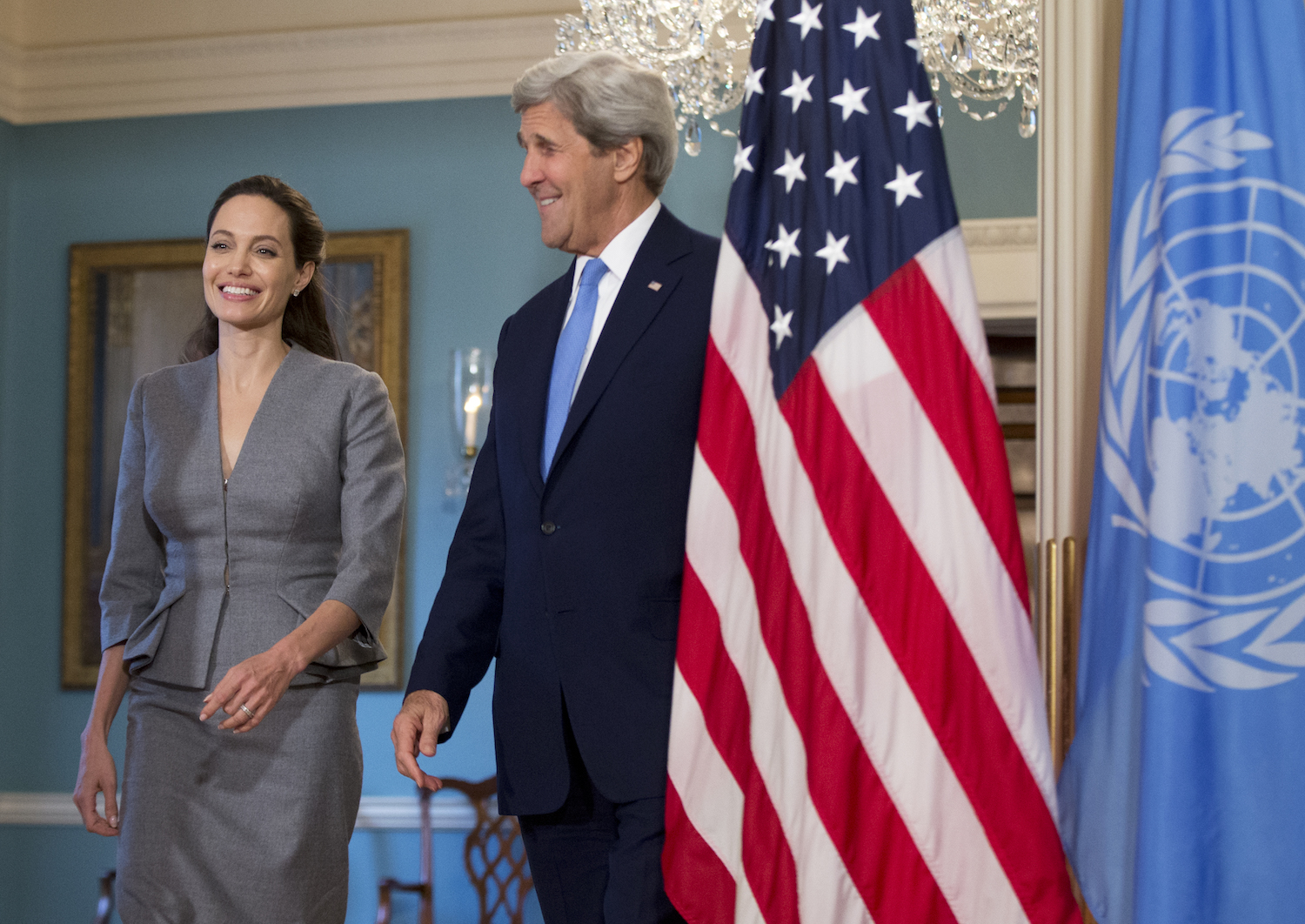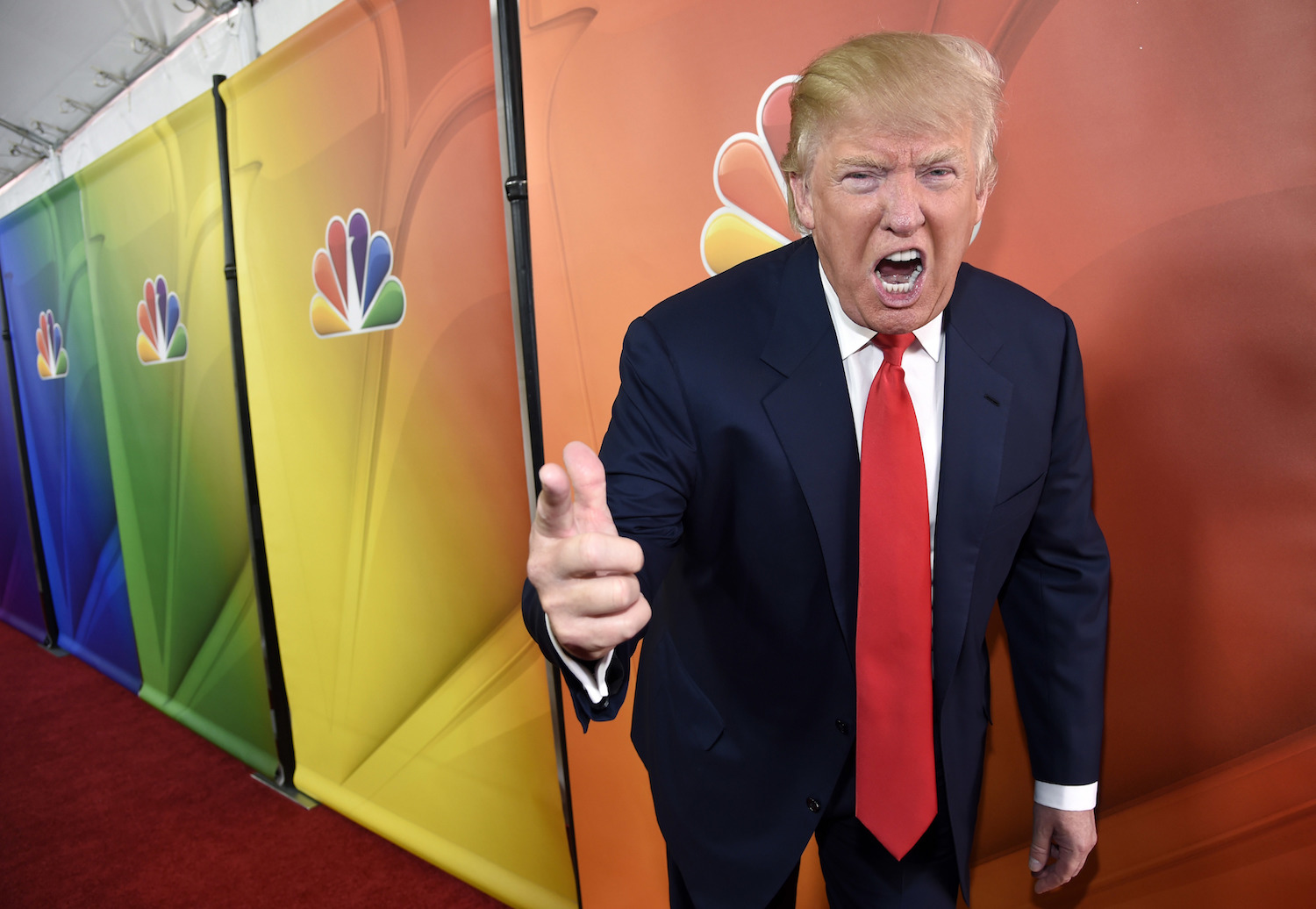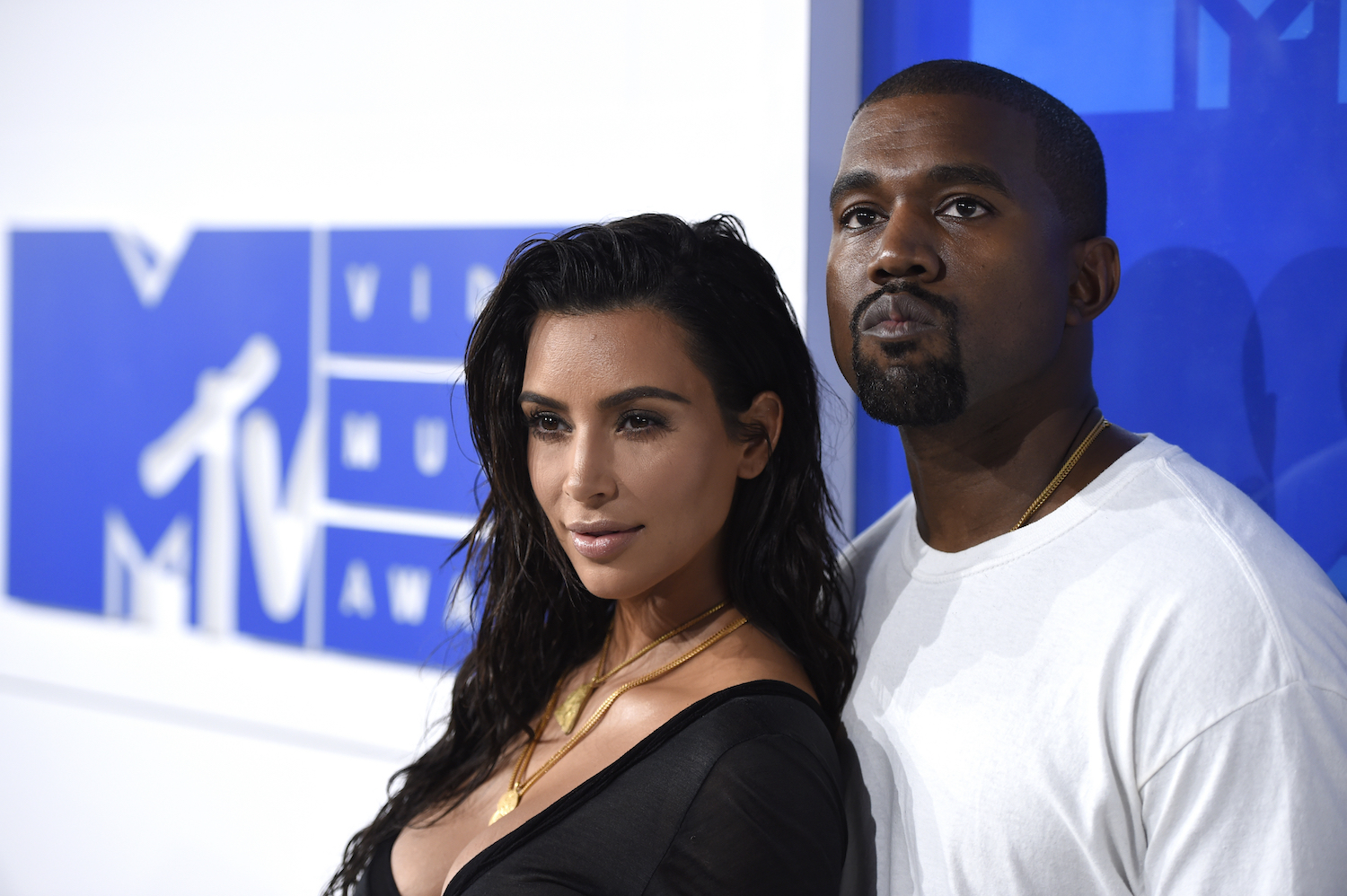A comedian friend does a routine where he portrays actor Ray Romano of “Everybody Loves Raymond” fame as president of the United States, delivering the State of the Union.
“Speaker Seacrest and Vice President Kardashian,” he says in the familiar cadence. “The state of our union is strong!”
The joke asks us to imagine our celebrity culture has become so pervasive that actors, comedians and people famous for just being famous could occupy the highest government positions, including the presidency. My friend started telling it long before reality TV star Donald Trump was the Republican presidential nominee.
Regardless of the outcome of the election, Trump has proven that it is possible for a celebrity to use his or her fame to win a national election. Washington really could go Hollywood. Will other celebrities follow suit?
Celebrities have always been politically active, especially in the Democratic Party. In April, George Clooney raised $15 million in two high-dollar fundraisers for Hillary Clinton. A seat at the head table with Clinton and the Clooneys reportedly went for $353,400. Jane Fonda and Ellen DeGeneres were on hand as attendees dined on Chilean sea bass and prawn risotto.
By March, Steven Spielberg had given $1 million to a super PAC aligned with Clinton plus the maximum legal contribution to her campaign. DreamWorks colleague Jeffrey Katzenberg did the same. Beyonce, Leonardo DiCaprio, Tom Hanks, Katy Perry and Ben Affleck were all Clinton donors, too.

Celebrities have always been politically active, especially in the Democratic Party. (AP Photo)
Clinton had already collected 90 percent of entertainment donations by the beginning of the year, according to a Los Angeles Times analysis. But her opponent has demonstrated it might be more efficient for these actors, singers and directors just to run for president themselves.
A paradox of the 2016 presidential campaign is that the wealthiest candidate in the race hasn’t had to spend as much money as some of the other candidates. Trump certainly hasn’t had to blow his real estate fortune.
According to one estimate, he has spent only 2 percent of his net worth running for president compared to 18 percent for Mitt Romney and 9 percent for Steve Forbes. Rick Scott spent 28 percent of his net worth running for governor of Florida, Linda McMahon 10 percent on her 2010 Senate campaign and 21 percent on her 2012 bid.
As of Oct. 19, Clinton raised $556 million to Trump’s $248.3 million. Throw in party joint fundraising committees and super PACs, and Clinton’s haul hits $1.3 billion to just $795 million for Trump. Despite Clinton’s cash advantage, a RealClearPolitics estimate the week before the election had Trump within a battleground state or two of the former secretary of state in the Electoral College.
The key is that Trump’s fame has helped him dominate the airwaves throughout the campaign, taking advantage of what is called “earned” — more accurately “free” — media. This was especially helpful in the primaries, where the businessman’s Republican opponents drowned in a sea of Trump coverage.
By March, Jeb Bush had spent $82 million on paid advertising to Trump’s $10 million. Trump ranked sixth among Republicans and eighth among all major-party candidates in ad spending. But he amassed nearly $2 billion worth of free media, more than all his GOP foes combined. Runner-up Ted Cruz earned just $313 million over the same period.
Contrary to the conventional wisdom, Trump was able to maintain this edge in the general election. In August, Trump’s earned media stood at $509.3 million to Clinton’s $364.2 million, according to mediaQuant. In the previous 12 months, Trump had an advantage of over $2 billion, with $4.6 billion to Clinton’s $2.5 billion. The only month they were even close was July, when both parties held their national conventions.

The key is that Trump’s fame has helped him dominate the airwaves throughout the campaign, taking advantage of what is called “earned” — more accurately “free” — media. (AP Photo)
All Trump had to do was tweet and he could dominate an entire news cycle (perhaps to his disadvantage). Cable news networks carried his rallies uninterrupted and unfiltered. Bookers fell over themselves scrambling to get him in front of the cameras, in pursuit of ratings gold.
What worked for Trump would surely fail for any conventional politicians. But couldn’t it work for Kanye West? West, a Clinton donor, husband of Kim Kardashian and one of the most famous people in the country, has floated the idea of running for president in 2020.
“I don’t have a view on politics,” the hip-hop artist told the BBC this year. “I just have a view on people, on humanity, on truth.” But West has pushed gun control and weighed in on other issues before.
“We are numb. We’re numb to 500 kids getting killed in Chicago a year, we’re numb to the fact that it was seven police shootings in the beginning of July … We’re numb to places on the Earth that we don’t live — like our life is OK but it’s OK for other people’s lives to not be OK,” West said in the same interview.
If West wanted to talk about Black Lives Matter or push a particular piece of gun legislation, he could own the headlines and nightly news as easily as Trump. This is especially true if his comments came in the context of being a possible political player rather than simply an opinionated entertainer.
For all the conservative ridicule of the Hollywood Left, it’s Republican celebrities who have been most likely to win elected office: Arnold Schwarzenegger served two terms as governor of California, song-and-dance man George Murphy represented the state in the U.S. Senate, Sonny Bono was in Congress, Fred Thompson a senator and presidential candidate, Fred Grandy of the “Love Boat” a congressman. And of course, there was Ronald Reagan, the 40th president of the United States.
Schwarzenegger said he would have run for president this year if constitutionally eligible. Charlton Heston, Chuck Norris, Ted Nugent and Scott Baio have all had second careers as conservative celebrities. Clint Eastwood, former mayor of Carmel-by-the-Sea, got a prime speaking slot at the Republican National Convention.

Kanye West, a Clinton donor, husband of Kim Kardashian and one of the most famous people in the country, has floated the idea of running for president in 2020. (AP Photo)
The Democrats’ bench of A-list celebrities is much deeper, yet Sen. Al Franken, D-Minn., is a rare example of one who actually became a politician. Warren Beatty considered a presidential bid in 2000, saying, “It’s no secret I am a liberal Democrat.”
Politics can be bad for a celebrity’s brand, however. You automatically alienate half the country. Comedian Amy Schumer has had Trump supporters walk out of her shows when she veers into politics. The Dixies Chicks faced boycotts after criticizing George W. Bush, and a casino kicked out Linda Ronstadt when her audience got rowdy after she pushed an anti-Bush Michael Moore film.
Trump has lost lucrative deals with NBC and Macy’s. His properties’ hotel bookings are down 59 percent. Mark Cuban, another famous person who could easily run for president, has said the Republican will wind up facing personal bankruptcy due to his “toxic brand.”
But Trump has undeniably shown how far an ego and an audience can get you in politics. Some ambitious, famous Democrat could easily envision doing to Martin O’Malley or Tim Kaine what Trump did to Bush and Cruz, putting away the check they were writing to some more conventional candidate and say, “Why not?”
Hail to the chief, Vice President Kardashian.
